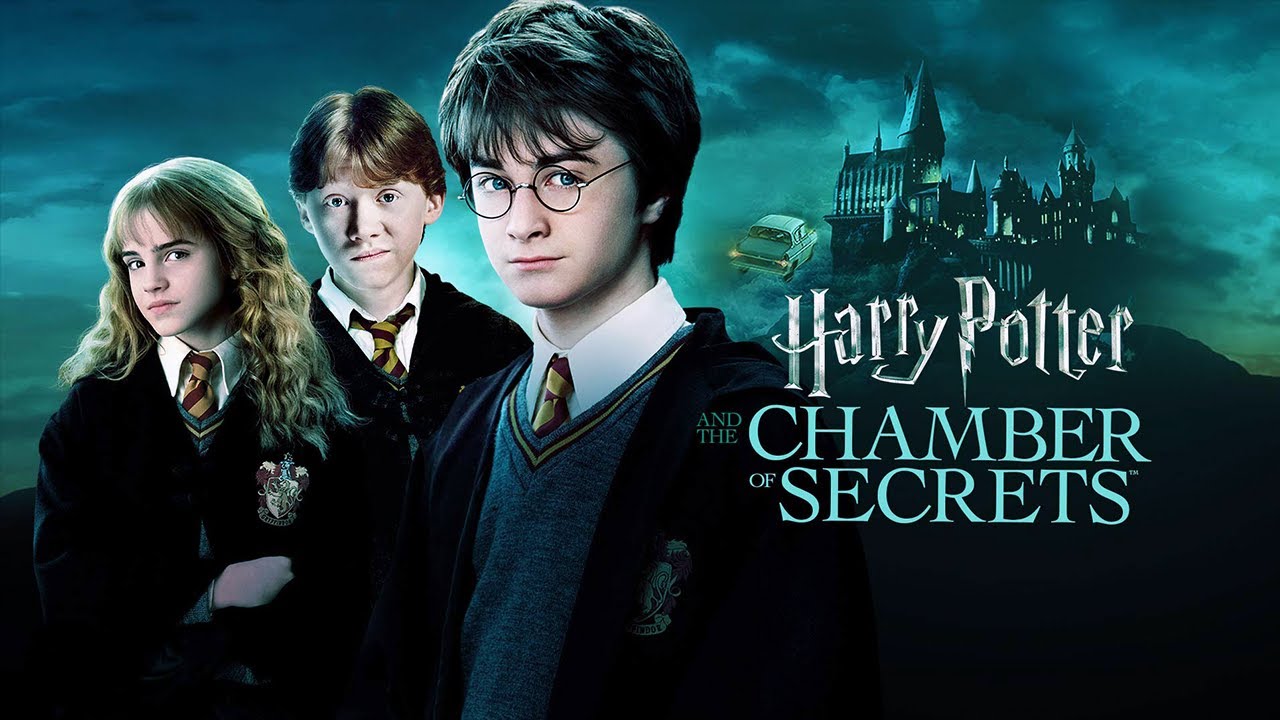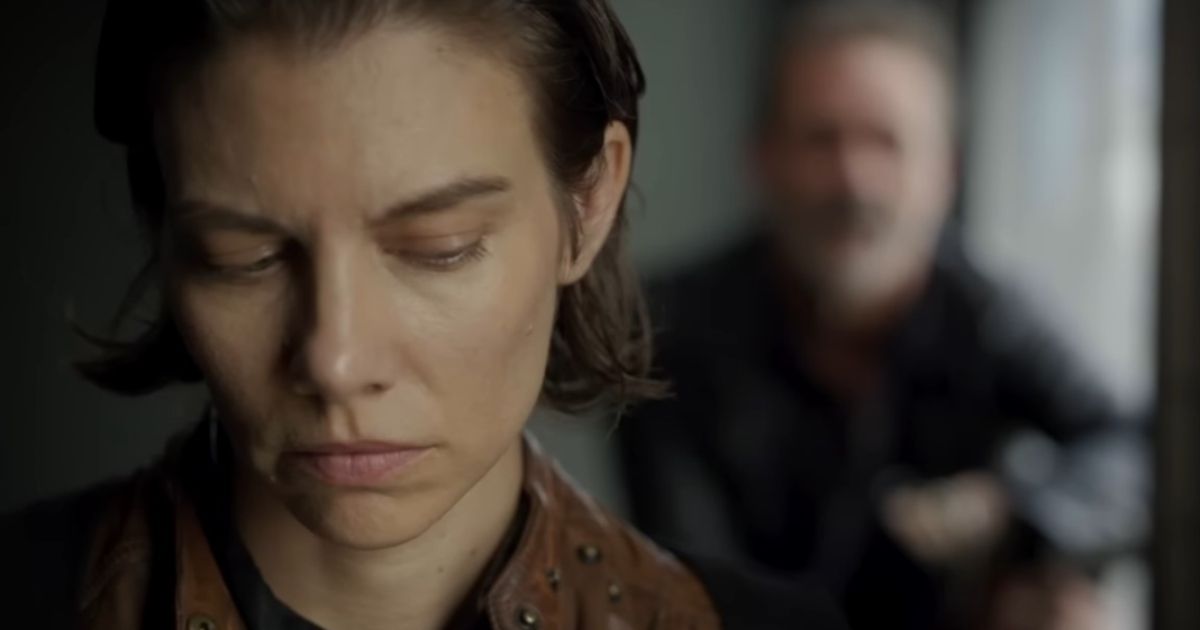The Reason Behind Chris Columbus's Departure From The Harry Potter Franchise After Chamber Of Secrets

Table of Contents
Creative Differences and Vision for the Series
Chris Columbus's departure from the Harry Potter franchise after successfully directing the first two films is often attributed, at least in part, to creative differences. While his interpretation of the initial books was widely praised, the increasingly darker tone of the subsequent novels may have clashed with his initial vision.
Differing Interpretations of the Books
Columbus's approach to the first two films leaned towards a more family-friendly feel, emphasizing childlike wonder and magical elements. This contrasted sharply with the growing complexity and darkness presented in Prisoner of Azkaban and the books that followed.
- Focus on childlike wonder and magical elements in the first two films: Columbus prioritized showcasing the fantastical elements of the wizarding world in a way that was accessible and engaging for a younger audience. The tone was lighter, emphasizing the joy and excitement of discovering magic.
- Contrast with the growing complexity and darkness presented in Prisoner of Azkaban and beyond: As the Harry Potter series progressed, the storylines became increasingly intricate, exploring darker themes of loss, betrayal, and the looming threat of Voldemort. This shift in tone demanded a different directorial approach.
- Examples of stylistic choices reflecting this difference: The visual style of Sorcerer's Stone and Chamber of Secrets was noticeably brighter and more whimsical compared to the subsequent films, which adopted a more mature and atmospheric visual language. Certain plot points were also handled differently, reflecting Columbus's focus on accessibility.
Collaboration with Author J.K. Rowling
The level of collaboration between Columbus and J.K. Rowling is another crucial aspect to consider. While Rowling was undoubtedly involved, the extent of her direct influence on the filmmaking process remains a subject of speculation.
- Rowling's level of involvement in the filmmaking process: While Rowling served as a consultant, the degree of her involvement in day-to-day creative decisions is unclear. This lack of clarity fuels various interpretations of their collaboration.
- Explore any documented instances of creative friction: There is limited public documentation of overt disagreements between Columbus and Rowling. However, the differing stylistic approaches suggest a possible divergence in their interpretations of the source material.
- Speculate on potential areas of disagreement: Potential areas of disagreement could have centered around character interpretations, pacing, or the emphasis placed on specific plot points. These disagreements might have been subtle, but nonetheless influential in shaping the direction of the films.
Scheduling Conflicts and Fatigue
The demanding nature of directing major blockbuster films like Harry Potter undoubtedly contributed to Columbus's decision. The sheer scale of the project, coupled with the intense pressure to deliver a successful adaptation, likely took a toll.
The Demanding Nature of Filmmaking
Directing a film of this magnitude is a colossal undertaking, involving extensive planning and execution.
- Highlight the long hours, extensive pre-production, and post-production work: The production of each Harry Potter film was a multi-year endeavor, demanding immense time and effort from the director and the entire crew.
- Consider the pressure of meeting deadlines and expectations associated with such a high-profile franchise: The pressure to live up to the expectations of millions of fans, as well as the studio’s financial investment, was undoubtedly immense.
Desire for Other Projects
Beyond the pressures of the Harry Potter franchise, Columbus may have simply wished to pursue other creative avenues.
- List any films or projects Columbus worked on after leaving Harry Potter: After directing the first two Harry Potter films, Columbus continued his career with other projects, indicating a desire to diversify his work.
- Discuss his career trajectory and whether it suggests a conscious decision to move on from the franchise: His subsequent projects suggest a conscious decision to move on to other types of films and stories, demonstrating a broader range of interests.
Financial and Contractual Considerations
While less discussed publicly, financial and contractual considerations might have played a role in Columbus's decision. Negotiations regarding salary, creative control, or contract length could have resulted in a mutually agreeable separation.
Negotiations and Contract Terms
The specifics of Columbus's contract with Warner Bros. are not publicly available, but analyzing publicly available information can provide some insight.
- Analyze any public statements or interviews that hint at contractual disputes: Any public statements from involved parties regarding the contract negotiations would help provide a more concrete understanding of the situation.
- Discuss the financial implications of continuing or leaving the franchise: The financial commitment involved in continuing with the franchise, compared to the potential opportunities that arose from pursuing other projects, could have factored into Columbus’s decision.
Conclusion
Chris Columbus's departure from the Harry Potter franchise after Chamber of Secrets remains a topic of much discussion. While the exact reasons are likely multifaceted, a combination of creative differences, scheduling pressures, and potentially contractual considerations likely played a significant role. Understanding these factors gives a deeper appreciation for the director's contributions to the initial success of the series and how the creative vision for the films evolved. To further explore this fascinating chapter in cinematic history, delve deeper into interviews and behind-the-scenes accounts related to the making of the first two Harry Potter films – understanding Chris Columbus’s departure illuminates the complex journey of bringing such a beloved literary series to the big screen.

Featured Posts
-
 Ahead Computing Secures 21 5 M In Seed Funding
May 02, 2025
Ahead Computing Secures 21 5 M In Seed Funding
May 02, 2025 -
 Is This Xrps Big Moment Etf Approvals Sec Developments And Market Impact
May 02, 2025
Is This Xrps Big Moment Etf Approvals Sec Developments And Market Impact
May 02, 2025 -
 Millions In Losses After Office365 Executive Account Compromise
May 02, 2025
Millions In Losses After Office365 Executive Account Compromise
May 02, 2025 -
 Concise Pasifika Sipoti Report April 4th
May 02, 2025
Concise Pasifika Sipoti Report April 4th
May 02, 2025 -
 Negan Joins Fortnite Jeffrey Dean Morgan Shares Insights
May 02, 2025
Negan Joins Fortnite Jeffrey Dean Morgan Shares Insights
May 02, 2025
Latest Posts
-
 Nws Tulsa Issues Warning Near Blizzard Conditions In The Area
May 03, 2025
Nws Tulsa Issues Warning Near Blizzard Conditions In The Area
May 03, 2025 -
 Tulsa Storm Damage Report Crucial Information For Nws Tracking
May 03, 2025
Tulsa Storm Damage Report Crucial Information For Nws Tracking
May 03, 2025 -
 Oklahoma Strong Wind Warning Severe Weather Timeline And Impacts
May 03, 2025
Oklahoma Strong Wind Warning Severe Weather Timeline And Impacts
May 03, 2025 -
 Strong Winds In Oklahoma A Severe Weather Timeline
May 03, 2025
Strong Winds In Oklahoma A Severe Weather Timeline
May 03, 2025 -
 Prepare For The Cold Four Inches Of Snow And Bitter Temperatures Tuesday
May 03, 2025
Prepare For The Cold Four Inches Of Snow And Bitter Temperatures Tuesday
May 03, 2025
